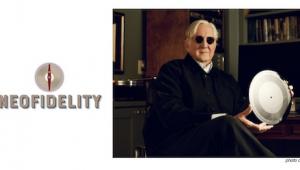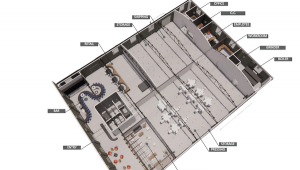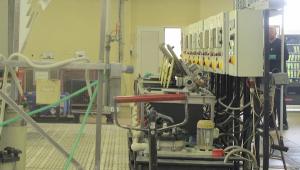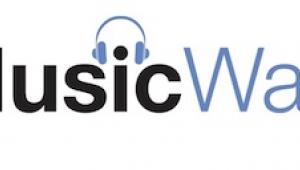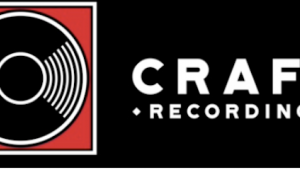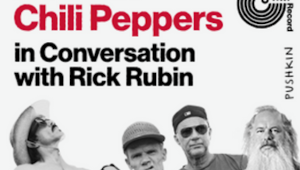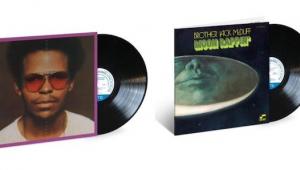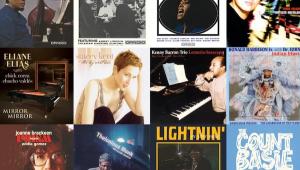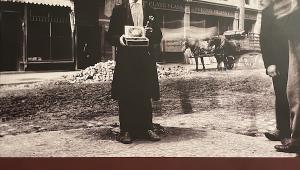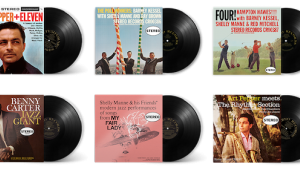But not all the vinyl mastering gurus are there, nor are there those of another big player in the reissue industry.
Where will MoFi's be.?
Bernie Grundman, Ryan K. Smith & Chad Kassem Discuss the Mastering Process and How to Create the "Perfect” Vinyl LP
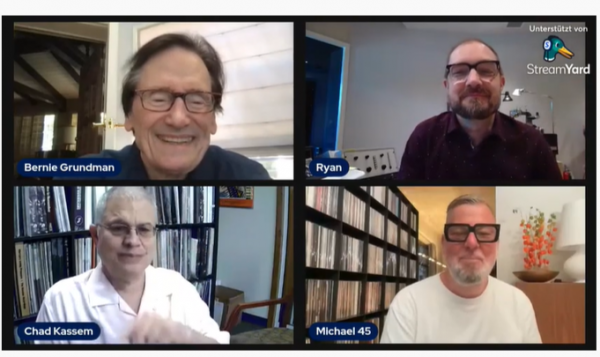
This past Saturday, vinyl mastering gurus Bernie Grundman and Ryan K. Smith, together with Acoustic Sounds founder and CEO Chad Kassem, joined Michael Ludwig of 45 RPM Audiophile on YouTube for an intriguing livestream event, during which they discussed a wide variety of topics, many (if not most!) of them analog-centric in nature.
“What we do every day is, we try to figure out how to make the best recording that can be mass-produced, and get it to the public,” noted Grundman at the outset of the discussion. “The only way you're really gonna know is by your ears. Your ears are gonna tell you the truth. . . . Nothing can measure [music] except for your ears.”
“Typically, we get them [i.e., Bernie and/or Ryan] the original analog master tape, because there’s only one original. Start with the best. Give them the best tool to work with,” outlined Kassem — in essence, laying out the M.O. we prefer to hear is being followed for vinyl releases.
“It’s also about getting closer to the original intent of the producers, the engineers, and the artists who made it,” added Smith. “When they walked out of the recording studio, they had tapes they deemed to be the best of what they did to deliver off to mastering. Anything that gets copied or duplicated beyond that is going to lose something from what they heard on the day that they said, ‘This is done.’”
These telling statements are but a taste of the broad range of topics covered by Grundman, Smith, and Kassem during the livestream, which lasted for 2 hours and 25 minutes all told. It's all worthwhile to watch, listen to, and learn more about the processes these experts follow when they’re working on the vinyl we ultimately decide to pay good money for and put on our turntables.
Rather than me giving away any more of what they’ve said, you can check out the entire discussion here, then feel free to share your thoughts about all that was discussed in the Comments section below.
- Log in or register to post comments


The most intersting line in the talk with Bernie Grundman and Chad was to me, that Bernie said, quarter inch master tape sounds better than half inch master tapes. A friend of mine always said to me so (because of magnetic distortion) and I never believed him, I must confess.
But now, the more I am pleased in stocking 15ips quarter inch tapes from all commercial outlets in the last years.

Vinyl = Analogplanet
R2R = Analogheaven
You could ask Chad, what will be the next releases on his Ultratape brand?
I could imagine a Kind of Blue. That would bring people to buy tape decks for future tapes.
And you could ask, what they think: if the analog track of Laserdiscs would have developed further to audio only analog laserdiscs in the last 20 years with increased carrier frequency from 2.8 MHz to 50 MHz and hence a frequency response of appr. 15 Hz to 80000 Hz - would that not have become the ultimate analog carrier of our time?
I own analog tracks on Laserdisc that beat even on the old Videoformat Laserdiscs some 15 ips 2-Track tapes or best vinyl (except the hiss).

to watch a 2:25 video right now, a text summary of the salient points would be most welcome.

I'd love to know how the cavemen who made those first pressings on that old cheap underweight vinyl managed to produce the versions of recordings that these remasters aspire to!
Plus, all they had on hand were prehistoric interconnects and power cords. (Yet, the signal somehow snuck through.)
It's a miracle that it turns out they preserved so many things on their cave-machinery that could not be discerned by the primitive gear of the time.
I really am constantly amazed by the quality of those old early pressings.
Don't get me wrong, I love this new stuff, but sometimes I get a vibe of "meet the new stuff, almost as good as the old stuff."

are legends already, Ryan on the way, great guys, love’em!
The way they interviewed themselves hit more interesting topics than most of the crowd questions, good to let it flow. Chad with his own moderation and advertising sections does it for a good cause (analog), so that is fine ;-)
There was some really interesting information given inbetween that wasn’t part of other similar events already and I really appreciated especially the open talk about what was done from copies or digital or not. Also that it’s difficult to make already great originals or reissues better again. Nice that the mastering guys were a bit more open than the labels (other than AP) usually demand. I otherwise learned, most labels don’t want the engineers to talk about sources, hope that changes.
Regarding the code identifying future analog/digital processes, I hope it also includes naming if the source was the original master or a copy. In case this can be applied also retrospectively for past releases, even better.
If I correctly read between the lines, we learned what the upcoming big release of AP will be (but I won’t mention to not jeopardize the deal ;-) ), I understood that Chad and Bernie sometimes made a few trials to get a release perfect and that Chad has some influence on final tonality (e.g. brightness or not). I’m sure a good influence in this case. Also that some engineers seem to have rather less than more principles when it comes to opposing quirky tastes and wishes of customers. Unfortunately, but understandable from a business perspective. I wished, the characteristic of releases of some engineers wouldn’t have such a wide client dependent dispersion and would rather have just the engineers’ footprint in case of bad customer taste.
The most interesting next topics for me would be to further talk about past and current releases’ use of original or copy analog sources, especially when they were available in parallel (ORG, ORG Music, AP 33/45 and others), the historic development of the individual mastering chains, the reasons for the use or not of tube and solid state mastering equipment, for which releases Bernie used and uses the tube equipment and an even deeper dive in experience of the engineers with differences between best digital technology (high sampling rate DSD) and analog,
Do it again, this was great!
@Bernie: you even did Rollins The Bridge twice. For Classic Records (33 and 45) and ORG Music! Sounding quite different but both really good.

As the prices Chad is charging it may be wise to pay a few extra buck for a first pressing .
Look at KOB he used a 95 master to do the UHQR. Charged 100 plus s&h .
Really and on the SH board people .
had issues with his pressing and he had to give refunds or replacement . I guess he made more than his limited run
What is Mike 45 credential's beside having a you tube channel and a record collection.
Sorry

It was mixed on the fly from the 3-track by Bernie Grundman for the cut used for the Classic Records 33 & 45 pressings. I’m sure Chad paid a nice sum 1) to buy the metal for those 6 sides and 2) to license their use again.
And at least he has been up front about doing so.

Beyond that, everything that is copied or replicated will lose some of the information that was presented that snake io day. A Kind of Blue, I could envision. It would encourage consumers to purchase tape decks for upcoming tapes.





